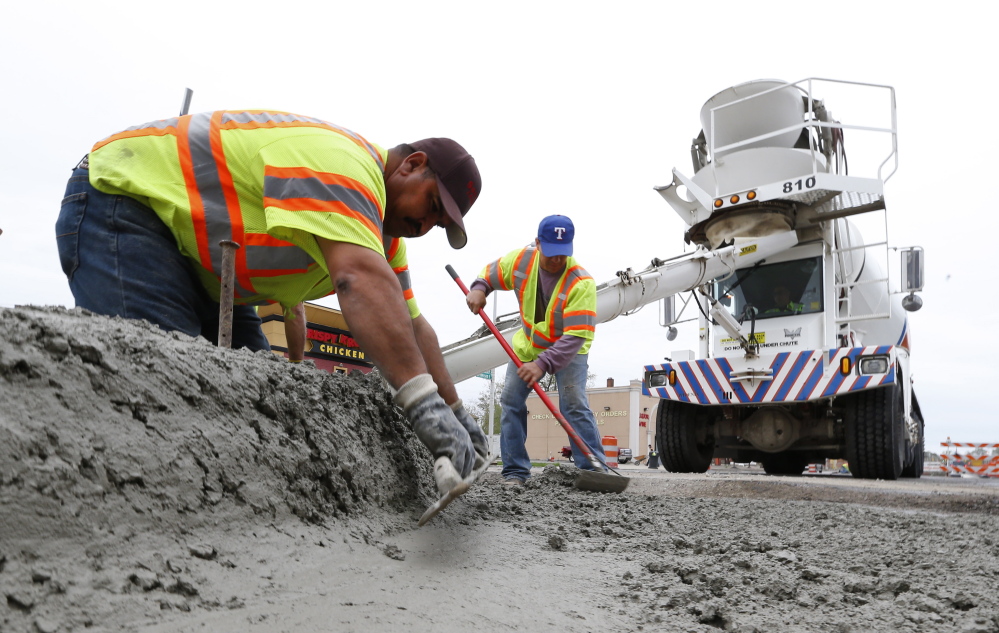WASHINGTON — With Congress on the brink of another failure at the end of this month, the usual bickering over who is to blame for not passing a promised long-term transportation bill was in full bloom Thursday on Capitol Hill.
“Our friends on the other side of the aisle haven’t issued a peep about what to do about it,” Sen. Chuck Schumer, D-N.Y., said, flanked by four Democratic colleagues at an afternoon news conference. “Please tell us how you intend to avoid a highway shutdown.”
The only plausible answer appears to be extending the current extension, which expires on May 31.
Another extension would be the 23rd time in recent years that Congress has faltered when faced with the need for a new transportation authorization measure. Each misstep matters to state transportation authorities who count on federal funding as they map their multiyear project plans. And it matters to thousands of construction workers who rely on those highway jobs.
“This is the summer construction season,” said Sen. Benjamin Cardin, D-Md., ticking off projects in his state that he said were in jeopardy. “Every one of these projects requires a long-term partnership with the federal government.”
There is no agreement in Congress even on how long the next extension ought to be. Some say it should last until the fiscal year ends Sept. 30, others want it extended until the end of the calendar year, and there is a push to pick a July date to “force the hand” of Congress to pass a long-term bill.
There is little about past history or politics to suggest that a forcing of the hand will produce results.
The May 31 deadline for passing a bill – the date that the current extension is set to expire – was, itself, a product of partisan contention.
The Democrats, fearing they might lose control of the Senate, began to push for a long-term bill last year. Republicans, suspecting that they might win the House, argued that passage of a new bill should wait until a new Congress arrived and got settled.
That’s how May 31 was selected.
More than simply press for passage of a long-term bill, Schumer and his colleagues argued Thursday that spending should be expanded to the levels proposed by the White House when it presented a six-year, $478 billion transportation plan last month. That would increase spending by about $25 billion a year. The bills that House and Senate Republicans have been working on this year are expected to keep funding near the current level of about $50 billion.
“Flat funding is unacceptable,” Schumer said. “If we fail to adopt the president’s numbers, states will be left in a hole.”
Send questions/comments to the editors.



Success. Please wait for the page to reload. If the page does not reload within 5 seconds, please refresh the page.
Enter your email and password to access comments.
Hi, to comment on stories you must . This profile is in addition to your subscription and website login.
Already have a commenting profile? .
Invalid username/password.
Please check your email to confirm and complete your registration.
Only subscribers are eligible to post comments. Please subscribe or login first for digital access. Here’s why.
Use the form below to reset your password. When you've submitted your account email, we will send an email with a reset code.